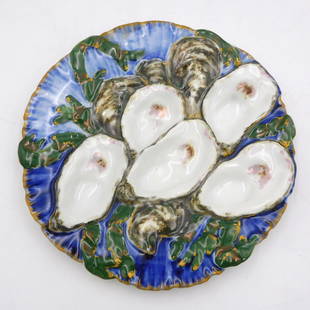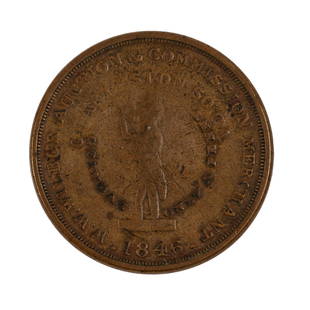

 Discovery- InteriorsBonhamsSponsored.Your ad here?
Discovery- InteriorsBonhamsSponsored.Your ad here?





 Discovery- InteriorsBonhamsSponsored.Your ad here?
Discovery- InteriorsBonhamsSponsored.Your ad here?




Albert Einstein On Human Nature: "Practice makes a master, Practice makes a hater…"
Similar Sale History
View More Items in Historical Memorabilia
Related Historical Memorabilia
More Items in Historical Memorabilia
View MoreRecommended Collectibles
View More








Item Details
Description
Albert Einstein On Human Nature: "Practice makes a master, Practice makes a hater…"
A thought-provoking item revealing Albert Einstein's views on human nature, ethical behavior, education, and environment, handsomely matted and ready for display. The lot is comprised of a typed card in English signed by Einstein as "A. Einstein"; its original transmittal envelope; the retained carbon copy of the letter to which Einstein was responding; and a high-quality photo reproduction of Einstein's portrait, professionally matted in cream and gilt lining to a completed size of 21.25" x 17.25" x .875."
Albert Einstein (1879-1955), the German Nobel Prize-winning theoretical physicist, received correspondence from people around the world wanting to know his opinion on a range of topics, from the practical to the philosophical. Such queries from the curious included: did scientists pray? did Einstein believe in eternal life? was Einstein an atheist? They sought out Einstein, who had an international reputation of scientific brilliance, because his long and intense contemplation of the universe seemingly granted him a special understanding of its mysteries. In this way, Einstein was viewed as a sort of twentieth-century Delphic oracle. Another one of Einstein's words of advice, on happiness, given to a bellboy during a tour of Japan in 1922, sold for $1.3 million at an Israeli auction house in 2017.
Mrs. Celia A. Neiman of New York City wrote Einstein to ask him a series of questions about human nature. The former psychiatric social worker who lived in the Hudson Heights neighborhood of Manhattan had witnessed events during the course of her work that made her question the origins of human dysfunction, and made her wonder if such dysfunction is intrinsic, or "elemental." In her letter, Neiman attempts to meet Einstein on familiar shared ground, scientist to scientist: she emphasizes the scientific context of her work ("I say laboratory because we tried to apply scientific methods to the understanding of human behavior"); and she also relies on physics terminology like "force," "power," and "energy" to describe her observations of human nature. Neiman's questions to Einstein were: 1) What is the nature of human emotion? 2) What is the source of its power? and 3) Are there different approaches to understanding and controlling human emotion?
Neiman cites the example of a 6-year-old girl clinic patient who passionately yelled that she hated everyone, "her small fists clenched, her eyes venomous…There was such a free almost pure expression of hatred that it seemed have in it some elemental power…" Einstein's response on the typed index card, "Practice makes a master / Practice makes a hater…" answers Neiman's questions: no, he does not believe that human nature is fundamentally good or evil; rather, people act out learned behaviors. It's more a function of nurture over nature, and he stresses the repetitive makeup of such nurturing (or lack thereof) by using the word "practice." Constant exposure to negativity and aggression caused the little girl's mental disturbance, according to Einstein. Canadian writer Malcolm Gladwell, in his book "Outliers: The Story of Success" (2008), posited that true expertise is the result of at least 10,000 hours of practice. If this is the case, then Neiman's patient--who truly excelled in hating, even at age 6--had long been exposed to hateful behavior from those surrounding her, until she too became hate-filled.
In his article, "Religion and Science," which appeared in "New York Times Magazine" on November 9, 1930, Einstein wrote in part that ethical behavior was "based effectually on sympathy, education, and social ties and needs." Einstein saw the universe as a coherent and predictable place where everything was determined by scientific principles or causal links. No such thing as a Manichaean struggle between good and evil, supernatural possession, or an irredeemable soul; instead, more logical explanations were true. Einstein's antidote to a world characterized by Neiman as dominated by hatred would be to ensure that "the creature is treated in such a way that it gets practice of the right sort." Ethical behavior starts small and at home.
The lot includes:
1. A typed index card in English signed by Einstein (1879-1955) as "A. Einstein" near the center. N.d., but the date "6-7-53" is lightly inscribed in green colored pencil in another hand in the lower left corner. [Princeton, New Jersey.] Light even toning and some isolated typewriter or letterhead ghost ink impressions not affecting the legibility of the text, else near fine. Actual size is 4.25" x 3.5."
Einstein wrote:
"Practice makes a master /
Practice makes a hater /
Practice makes one a friend /
toward people /
It only depends that the creature is / treated in such a way that it gets / practice of the right sort.
[signed] A. Einstein."
2. The original transmittal envelope typed with Einstein's address at "112 Mercer St. Princeton, N.J." along the top edge. Postmarked June 16, 1953 from Princeton, New Jersey and bearing a canceled U.S. 3-cent purple Thomas Jefferson stamp. Expected weathering including letter-opening along the right edge, else very good. Actual size 5" x 4.125."
3. A retained carbon copy of a June 4, 1953 typed letter from Einstein's correspondent, Mrs. Celia A. Neiman of New York City. Expected wear including moderate toning, minor smudging, and isolated chipped edges and closed tears found along the right margin, else very good. Actual size 8.5" x 11."
This item comes with a Certificate from John Reznikoff, a premier authenticator for both major 3rd party authentication services, PSA and JSA (James Spence Authentications), as well as numerous auction houses.
WE PROVIDE IN-HOUSE SHIPPING WORLDWIDE!
Buyer's Premium
- 28%
Albert Einstein On Human Nature: "Practice makes a master, Practice makes a hater…"
Shipping & Pickup Options
Item located in Wilton, CT, usPayment

Auction Curated By
























































![10 Days After His Assassination JFK Signed W. H. letter, Fantastic! Among JFK's Last Acts in White H: John F. Kennedy[Washington, D.C.], December 2, 196310 Days After His Assassination JFK Signed W. H. letter, Fantastic! Among JFK's Last Acts in White House Post Dated Before Dallas TripTLSJOHN F. KENN](https://p1.liveauctioneers.com/6306/327579/176471594_1_x.jpg?height=310&quality=70&version=1714074043)

















![George Washington Signed Discharge: Partly printed discharge document signed by George Washington, as Commander in Chief of the Armies of the United States. Newburgh, [New York], 4 January 1783. 1 page, ## x ## in. Undersigned by Washin](https://p1.liveauctioneers.com/7226/322253/173251475_1_x.jpg?height=310&quality=70&version=1710004847)



